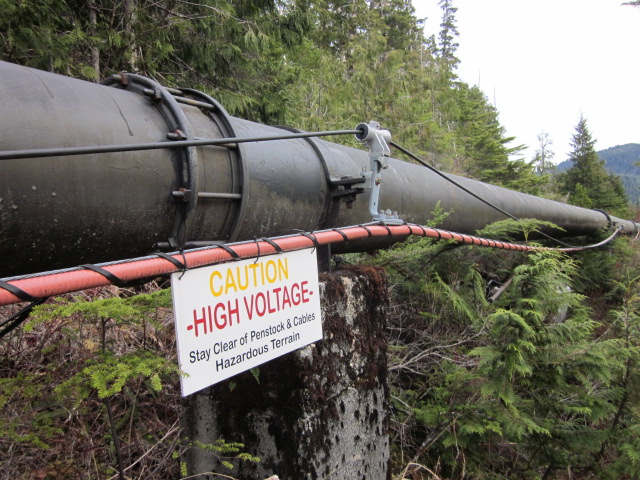
There’s a silver lining to this soggy summer in Southeast Alaska. Hydroelectric reservoirs that were impacted by a multi-year drought have rebounded and are nearly full this month.
Mountaintop reservoirs that provide electricity for Petersburg, Wrangell and Ketchikan have been steadily filling the last few months. Those have been fed by the melt of a normal snow pack from last winter and ongoing rainfall in June and July.
The Southeast Alaska Power Agency, or SEAPA, provides power to the three communities from Swan Lake near Ketchikan and Tyee Lake near Wrangell. SEAPA CEO Trey Acteson expects those lakes could be spilling water later this week if the wet weather continues.
“We’re thrilled that the reservoirs have been able to recharge,” Acteson said. “It’s a good illustration just how volatile our weather is. Obviously that impacts SEAPA’s revenues too directly. As the inflows change from year, it can change our revenues drastically as well.”
Those lakes normally refill in the spring, summer and fall, but stop recharging during the colder months. That normal cycle was interrupted by a multi-year drought that started in 2017 and brought with it low snowfall in the winter. It left the communities relying on backup diesel generators and the power provider with millions of dollars less in electrical sales just a year ago. Acteson noted that drought also came right after SEAPA expanded its capacity at the Swan Lake reservoir.
“Well the nice thing is that this will be the first year that we’re fully utilizing the reservoir expansion project that we installed the flash boards at Swan Lake,” he explained. “So we’re able to impound a lot more water than we have been able previously. So that’s great that we’re finally recognizing that investment. Of course this can all change just as quickly as this all started.”
Petersburg’s smaller hydro project at Crystal Lake was also just two to three feet below capacity as of Monday, July 20 and expected to spill. Ketchikan Public Utilities website also reported hydro lakes nearly full.











